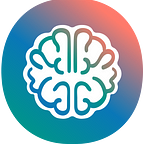The Value of AI-Assisted Triage in Reducing the Total Cost of Care and Having a Mentally and Physically Healthy Society
A new publication by the Evernorth team shows the long-term value of providing behavioral health services in resulting in better and lower-cost management of both medical and behavioral conditions. The study found that any amount of outpatient behavioral health treatment (OPBHT) was associated with reduced medical costs over the 15 and 27 months following the initial diagnosis.
This is why it is important to invest in more proactive screening and triage of mental health problems at the population health level. AI-assisted triage can help to achieve this goal by providing a number of benefits, including:
- Quick and accurate assessment of patients’ needs: AI-assisted triage can help providers to quickly and accurately assess patients’ needs by asking them a series of questions about their symptoms, history, and preferences. This information can then be used to create a personalized treatment plan.
- Tracking of patients’ progress over time: AI-assisted triage can also help providers to track patients’ progress over time by monitoring their symptoms, medication adherence, and overall health status. This information can be used to make adjustments to the treatment plan as needed.
- Personalized care: AI-assisted triage can help providers to provide more personalized care by understanding patients’ individual needs and preferences. This information can be used to tailor the treatment plan to each patient’s unique situation.
- Reduction of the workload of mental health teams: AI-assisted triage can help to reduce the workload of mental health teams by performing some of the tasks that are currently done by providers, such as screening and assessing patients. This frees up providers’ time so that they can focus on providing more direct care to patients.
In addition to these benefits, AI-assisted triage can also help to reduce the total cost of care by:
- Preventing unnecessary referrals: AI-assisted triage can help to prevent unnecessary referrals by identifying patients who do not need to see a specialist. This can save money by reducing the number of unnecessary visits and tests.
- Improving the efficiency of care: AI-assisted triage can help to improve the efficiency of care by streamlining the process of assessing and triaging patients. This can free up time for providers to focus on other aspects of care, such as providing treatment and managing patients’ conditions.
One clinically validated solution that mental health teams can consider is OPTT Health AI triage. OPTT Health is a platform that uses AI to assess patients’ mental health needs and provide recommendations for treatment. OPTT Health has been shown to be effective in reducing the time to diagnosis, improving the quality of care, and reducing the total cost of care.
Conclusion
AI-assisted triage is a valuable tool that can help to improve the quality of care that is provided to patients with mental health problems. It can also help to reduce the total cost of care by preventing unnecessary referrals and improving the efficiency of care. As the demand for mental health services continues to grow, AI-assisted triage will become an increasingly important tool for mental health teams.
